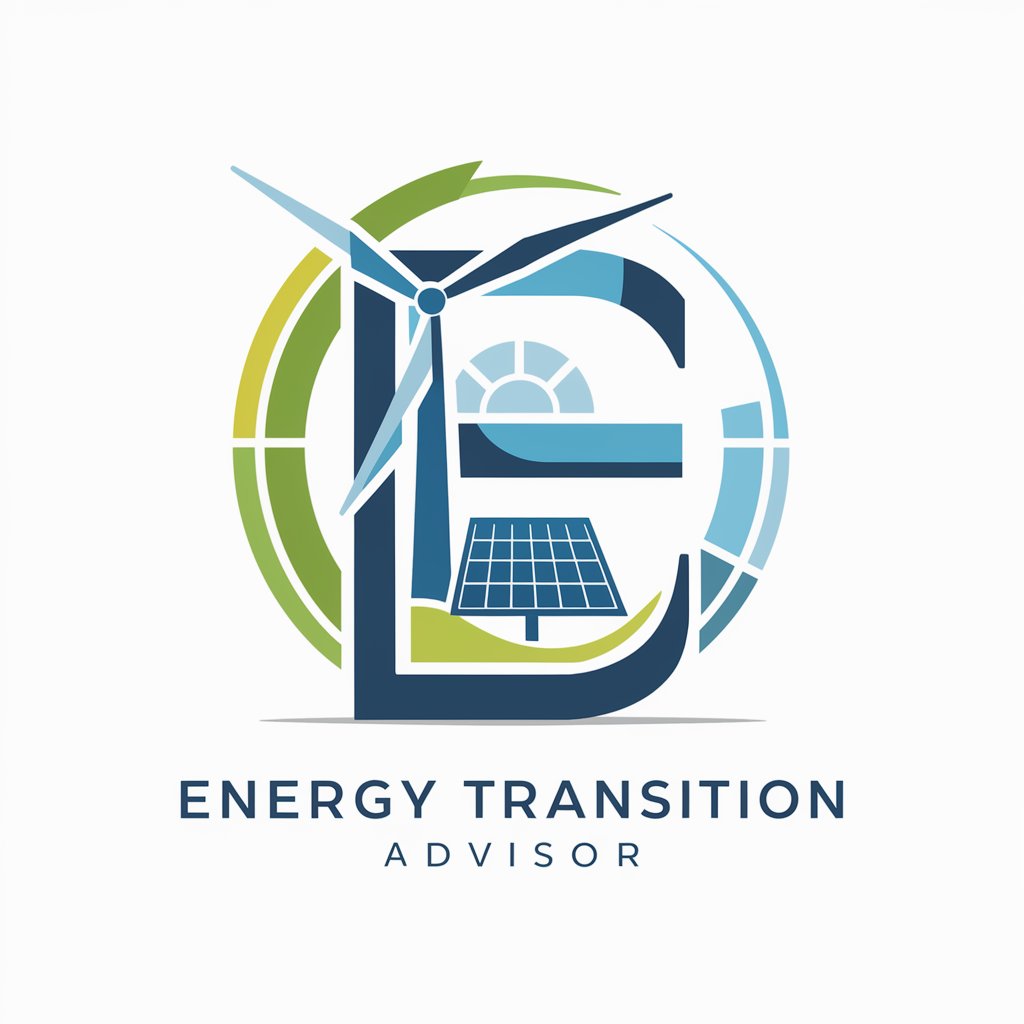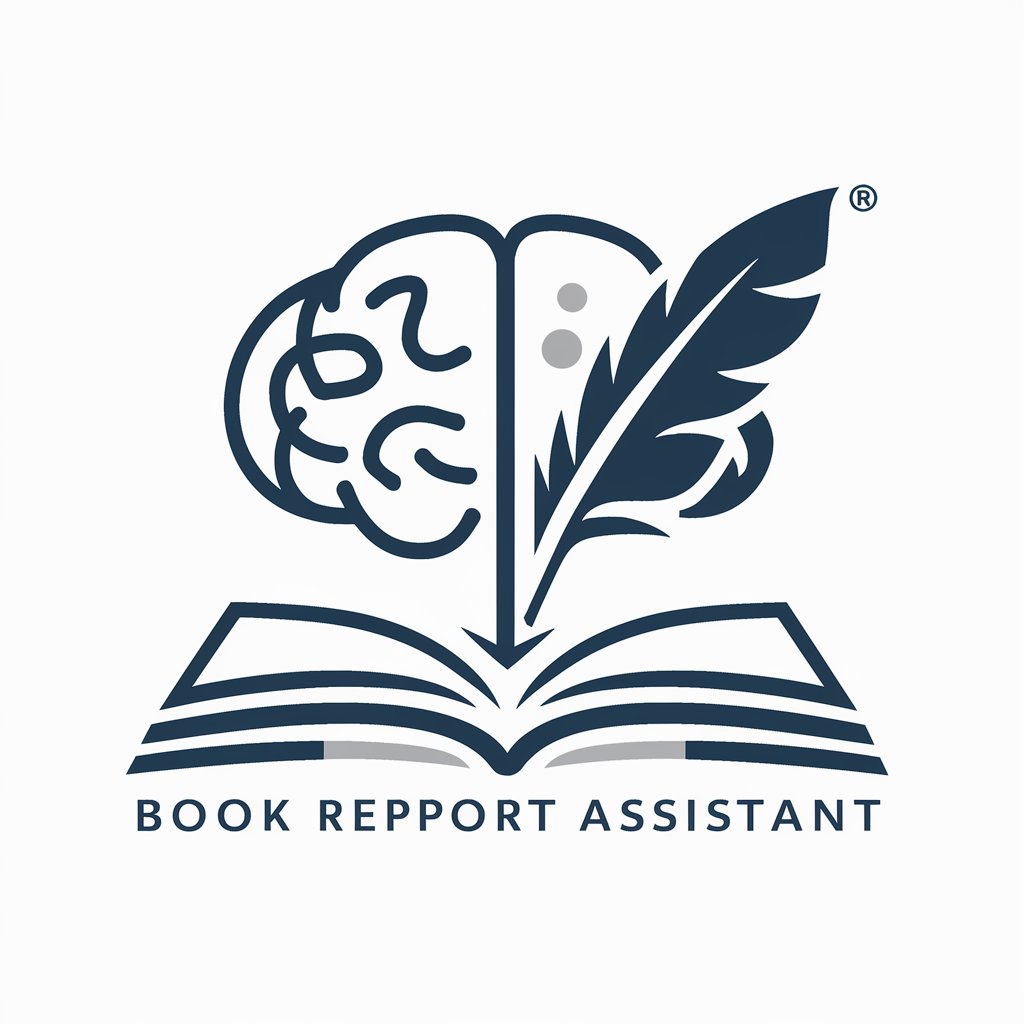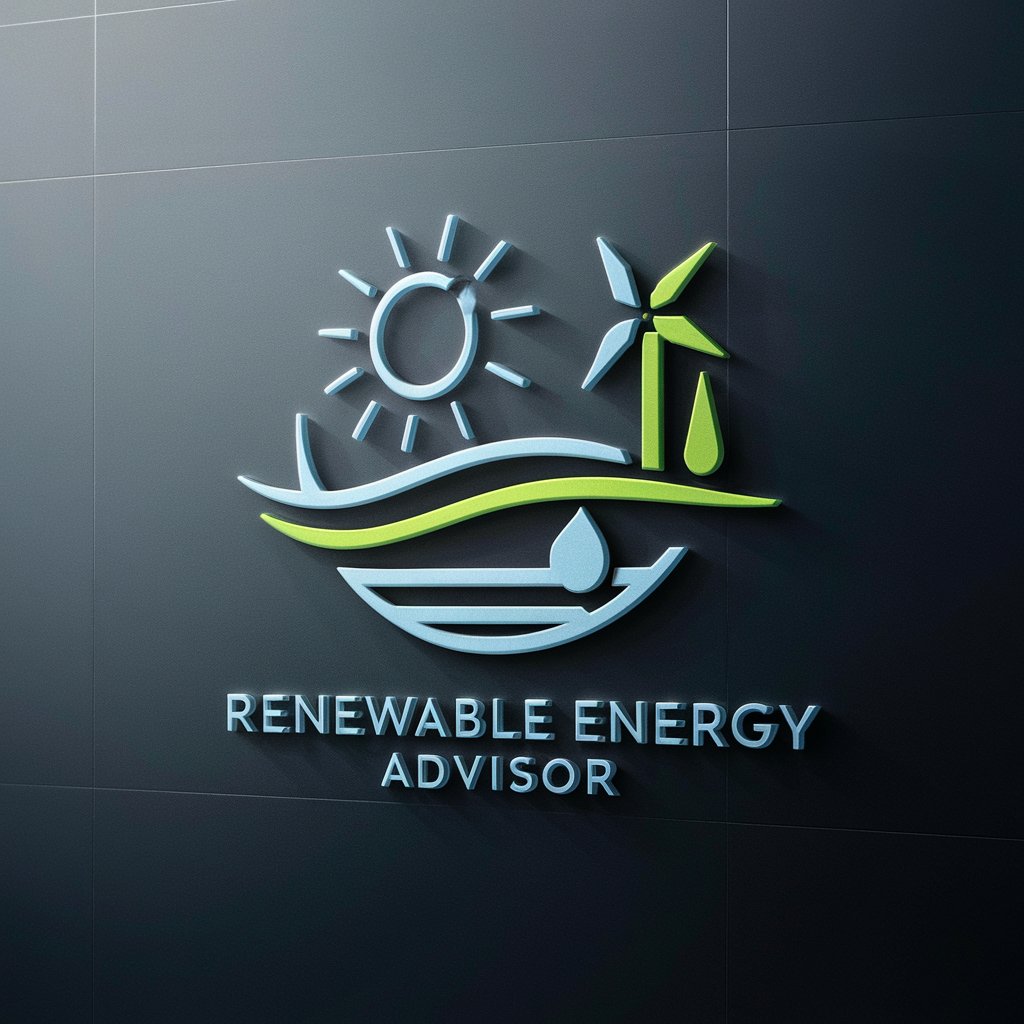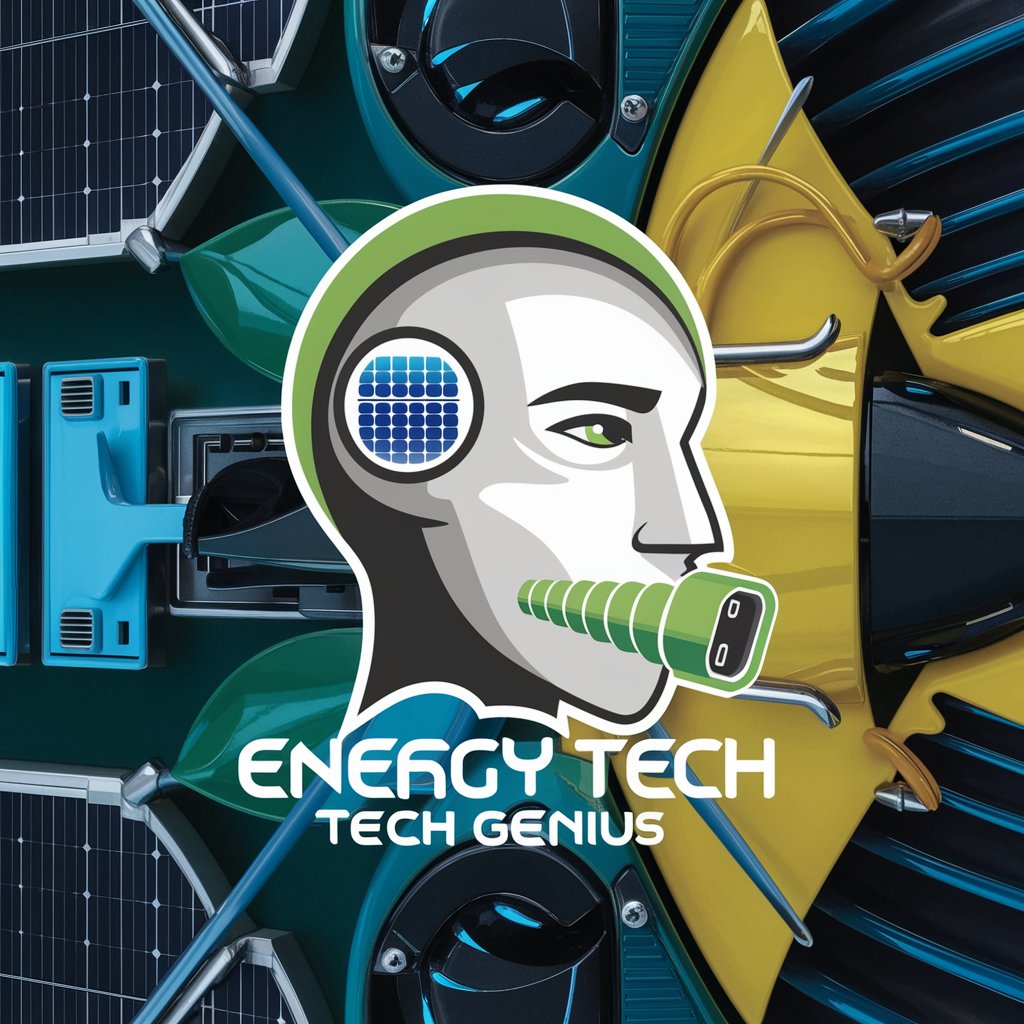
Energy Transition Advisor - Energy Transition Insights

Welcome to Energy Transition Advisor, your strategic partner in the energy sector.
Empowering energy decisions with AI
Compare the current renewable energy policies of different countries.
Analyze the impact of recent regulations on the solar energy market.
Provide strategic recommendations for a company transitioning to renewable energy sources.
Evaluate the performance metrics of leading energy companies in the wind energy sector.
Get Embed Code
Energy Transition Advisor: Bridging the Future of Energy
Energy Transition Advisor is a specialized AI tool designed to assist stakeholders across the energy sector in navigating the complexities of the energy transition towards more sustainable and renewable sources. It serves as a creative consultant, combining insights into current energy policies, regulatory landscapes, and market trends with data analysis to recommend strategic directions. Through the analysis of regulations, benchmarking of industry practices, and performance metrics, it helps users make informed decisions. For instance, it can guide a utility company in planning its shift from coal to solar energy by analyzing market demand, regulatory incentives, and technological advancements. Powered by ChatGPT-4o。

Core Functions of Energy Transition Advisor
Regulatory Analysis
Example
Examining the impact of the European Union's Green Deal on utility companies.
Scenario
A utility company seeks to align its operations with the Green Deal's requirements. The Advisor analyses relevant policies, suggesting strategies for compliance and capitalizing on funding opportunities for green initiatives.
Benchmarking Studies
Example
Comparing renewable energy adoption rates among leading utility companies.
Scenario
An energy startup wants to understand industry benchmarks for renewable energy adoption. The Advisor provides a detailed comparison, highlighting best practices and performance metrics to help the startup position itself competitively.
Strategic Planning Support
Example
Advising on the transition from fossil fuels to renewable energy sources.
Scenario
A multinational corporation plans to revamp its energy sourcing. The Advisor evaluates the corporation's current energy footprint, recommending a phased approach to adopting solar and wind energy, including potential investments and partnership opportunities.
Policy Impact Forecasting
Example
Predicting the effects of upcoming carbon taxation on manufacturing industries.
Scenario
A manufacturing company concerned about future carbon taxes seeks guidance. The Advisor forecasts the financial and operational impacts of such policies, advising on mitigation strategies and alternative, cleaner energy sources.
Who Benefits from Energy Transition Advisor?
Utility Companies
These entities benefit by understanding regulatory landscapes, identifying investment opportunities in renewable energies, and aligning their operations with sustainability goals. The Advisor's insights help them navigate the shift to green energy, manage risks, and capitalize on new market trends.
Energy Startups
Startups in the energy sector can leverage the Advisor for competitive analysis, identifying market niches, and understanding the regulatory requirements for new technologies or services. It helps them strategize their market entry and scale-up by providing data-driven insights and industry benchmarks.
Policy Makers and Regulators
These users gain from the Advisor's ability to analyze the impact of policies on the energy market, forecast future trends, and evaluate the effectiveness of regulations. It supports them in crafting policies that promote sustainable energy transition, ensuring they are based on comprehensive market and regulatory insights.
Industrial and Commercial Energy Consumers
Large consumers of energy can use the Advisor to develop strategies for energy efficiency, reduce carbon footprints, and transition to renewable energy sources. It aids in evaluating the costs and benefits of different energy sources, optimizing energy consumption, and identifying potential savings or investment opportunities.

How to Use Energy Transition Advisor
1
Visit yeschat.ai for a complimentary trial, no sign-up or ChatGPT Plus required.
2
Choose 'Energy Transition Advisor' from the list of available GPTs to start your session.
3
Identify your query or the challenge you're facing in the energy sector. Be specific to get the most accurate advice.
4
Enter your question into the chat interface. You can ask about regulations, policies, benchmarking studies, or strategies for energy business.
5
Review the provided advice and utilize it to inform your decisions. For complex queries, consider asking follow-up questions for additional clarity.
Try other advanced and practical GPTs
Business Innovator
Empowering Innovation with AI

Lola's Canvas - Assistant
Empowering Your Brand with AI

Write My Book Report | For Free
AI-Powered Book Report Assistance

Angel Reading Guide
Divine insights at your fingertips.

Bilingual Textbook Quiz Generator
AI-Powered Bilingual Quiz Crafting

IDEAfier - KJV Book of Psalms
Unlocking the Psalms with AI

Business Amplifier
Empowering Business Decisions with AI

Data Insight Analyst
Empowering insights through AI analysis

Business Cards
Craft Your Professional Identity with AI

Business Directory
Empowering Decisions with AI-Powered Insights

Business Development
Strategize, Grow, and Expand with AI

Code-Bi-Wan
Empowering code mastery with AI

Energy Transition Advisor Q&A
What kind of regulatory information can Energy Transition Advisor provide?
It offers insights into current energy policies, regulations, and legislative trends worldwide, helping users navigate the complex legal landscape of the energy sector.
Can it assist in developing renewable energy projects?
Yes, it advises on best practices, potential challenges, and strategic approaches for developing renewable energy projects, including solar, wind, and hydro.
How does Energy Transition Advisor help in benchmarking?
It compares business practices, performance metrics, and technological adoptions against industry standards to identify areas of improvement and competitive advantages.
Is this tool useful for academic purposes?
Absolutely. It supports academic research by providing data, trends, and analysis on energy transition, suitable for papers, theses, and research projects.
Can it suggest strategies for reducing carbon footprint?
Yes, it provides tailored strategies for businesses and organizations looking to reduce their carbon footprint through energy efficiency improvements and renewable energy adoption.





